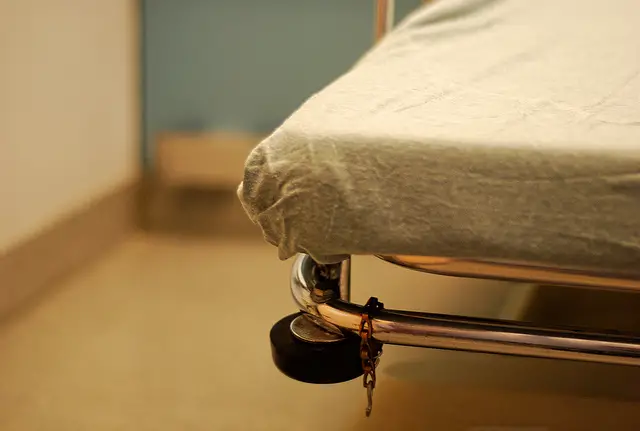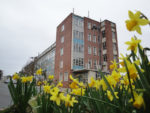A lack of support at St Mary’s Hospital left trainee doctors working alone, making decisions about clinical care they were not qualified to make — and patients suffered as a result.
The General Medical Council (GMC) has raised serious concerns abouaskedt patient safety at the Isle of Wight hospital following an inspection in February, where it found staff were asked to make decisions they were not medically qualified to make.
Range of serious concerns
Concerns raised by the GMC:
- Some departments refused to take patients because the wards were full and no beds available. In some cases, the GMC found decisions made by doctors, with regard to admission, discharge and patient location were undermined by bed management teams.
- Bullying and gossiping. Staff said they had witnessed nurses being shouted at by consultants, and gossiping behind people’s backs. When consultants disagreed with each other, trainees said they felt caught in the middle.
- Inappropriate behaviour with respect to race and sexual orientation from senior clinicians in medicine and the emergency department.
- Some foundation trainees said they had been asked to discharge patients, something they were not qualified to do. In one incident, the bed management team decided to discharge a patient without a doctor’s consent.
- Medical students said there was no information about population and diversity during their induction. The students mentioned they had heard examples of inappropriate comments regarding culture and race, particularly in surgery.
- Foundation doctors said that, due to the rota, they were sometimes left as the sole on-site doctor, covering a range of surgical specialities beyond their competency.
- The skill mix on rotas was not understood by the coordinators, so the correct balance of skills was not always in place.
- Several trainees felt they had inadequate clinical supervision when working at night.
- The GMC was told that trainees in general internal medicine, which involves treating patients with a wide range of acute and long-term conditions, were being subjected to ‘questionable’ and inconsistent assessment methods. The GMC said there was no evidence the trust had monitored the signing off of assessments by supervisors.
- Doctors in higher speciality training said they did not receive any feedback on their performance, and were not confident they had gained enough experience.
IW NHS: Concerns “actively addressed”
The Isle of Wight NHS Trust said the concerns had been actively addressed over the past six months.
Medical director Alistair Flowerdew was appointed in June. He said:
”I am personally taking steps to ensure that all the outstanding requirements are completed.
“These include greater supervision and support of junior doctors by their consultants and restructuring the handover processes to ensure that continuity of care and patient safety are maintained at all times.
“Work is already in progress in collaboration with both junior doctors and senior medical staff. The improvements will be monitored by the trust board in order to assure the GMC and the people of the Isle of Wight that high quality of care is provided to our patients and is delivered at all times.”
Ongoing monitoring
Concerns identified by the GMC were raised with the Isle of Wight NHS Trust and Health Education England Wessex (HEE) immediately following the visit. Both have given the regulator assurances the issues are being addressed. Monitoring is ongoing to ensure standards are maintained.
Director of education and standards at the GMC, Professor Colin Melville, said:
“We set high standards for medical education and make no excuses for doing so. Patients rightly expect and deserve good care from their doctors, and it is important doctors have the support they need to do the job well.
“The serious concerns on the Isle of Wight fall below the high standards we set. It is a site we have been monitoring for some time and we have been given assurances that the issues are being addressed as a priority. We will continue to check on progress to make sure that is the case.
“Health care services are under pressure like never before, and that puts a strain on doctors and other health care workers. HEE Wessex’s Professional Support Unit, where trained staff can give advice to those experiencing difficulties in their careers or personal lives, offers a fantastic and valuable resource.”
This article is from the BBC’s LDRS (Local Democracy Reporter Service) scheme, which OnTheWight is taking part in. Some additions by OnTheWight. Ed





